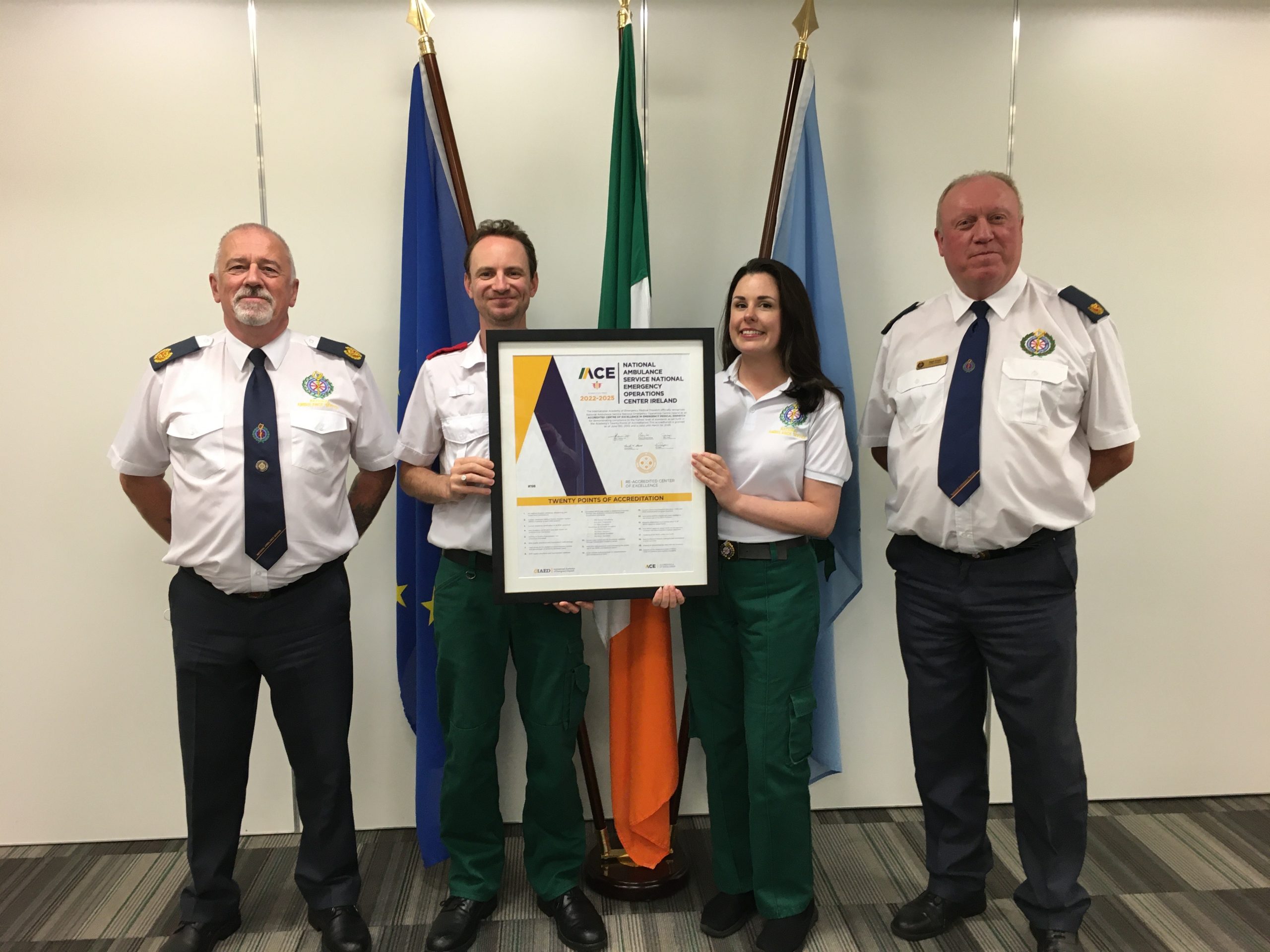The HSE National Ambulance Service has been recognised by The International Academies of Emergency Dispatch (IAED) as an Accredited Center of Excellence (ACE) for emergency dispatching.
IAED is the standard-setting organisation for emergency dispatch services worldwide. Accreditation (and subsequent re-accreditation) from the IAED is the highest distinction given to emergency communication centres, certifying that the centre is performing at or above the established standards for the health sector.
The IAED said centres that earn ACE status are the embodiment of dispatch done right, and have demonstrated strong local oversight, rigorous quality processes, and a commitment to data-driven continuous improvement.
The call taking/dispatch function is operated by the National Ambulance Service National Emergency Operations Centre (NEOC) which operates across two sites, Dublin and Ballyshannon. NEOC utilises Advanced Medical Priority Dispatch System (AMPDS) using international standards in triaging and prioritising emergency calls. NEOC dynamically deploys resources to areas where cover is required or to respond to incidents as they arise to ensure the nearest available resource responds to emergencies. All 112/999 calls are clinically triaged based on the patient’s condition. The nearest available and most appropriate response is dispatched, with the most urgent calls prioritised.
“The National Ambulance Service is delighted to have been recognised by IAED as an Accredited Center of Excellence for emergency dispatching. This recognition demonstrates the high standards to which our service operates and is a testament to the hard work and dedication shown by our staff as we strive to provide a caring and professional service to the public at times of need,” said Robert Morton, Director of the HSE National Ambulance Service.
“Accreditation is truly a pinnacle achievement”, said Christof Chwojka, Accreditation Board Chair at IAED. “We applaud the dedicated calltakers, dispatchers, and leadership team at the National Ambulance Service for their commitment to quality, and for meeting that high standard that few achieve. We know their community can count on these first responders to do an outstanding job.”
IAED will present the National Ambulance Service with an Accreditation plaque that commemorates their achievement. IAED Accreditation is the culmination of a lengthy, arduous process that includes the completion of the 20 Points of Accreditation, a detailed evaluation of performance by industry experts, and a final review and ruling by IAED.
Kim Rigden, Associate Director of Accreditation, IAED explains, “This process is undertaken by communications centers who desire to be the best of the best. Achieving ACE confirms it. The National Ambulance Service should be very proud of this achievement and the wonderful service they provide to the community and their emergency responders.”
Accreditation is valid for a three-year period, during which all standards must be upheld. Emergency communication centres can earn multiple accreditations, one for each emergency discipline they service (medical, fire, police, and emergency nurse triage).
Over 3,500 emergency communication centres worldwide use the medical, fire, police, and emergency nurse triage protocols developed and maintained by the IAED. The protocol-based system – known as the Priority Dispatch System – is recognised as the standard of care and practice for emergency dispatch and is used in 46 countries.
Notes
About IAED: For more than 40 years, the IAED has been the standard-setting organisation for emergency dispatch and response services worldwide and is the leading body of emergency dispatch experts. IAED is a member-driven association working to serve the public through the professional development of dispatchers. Its various boards and councils work on behalf of the membership—and in coordination with other public safety organisations – to ensure that the comprehensive system of emergency dispatching is as safe, fast, effective, and up to date as possible.
Help support Cork Safety Alerts by becoming a member – Click Here

